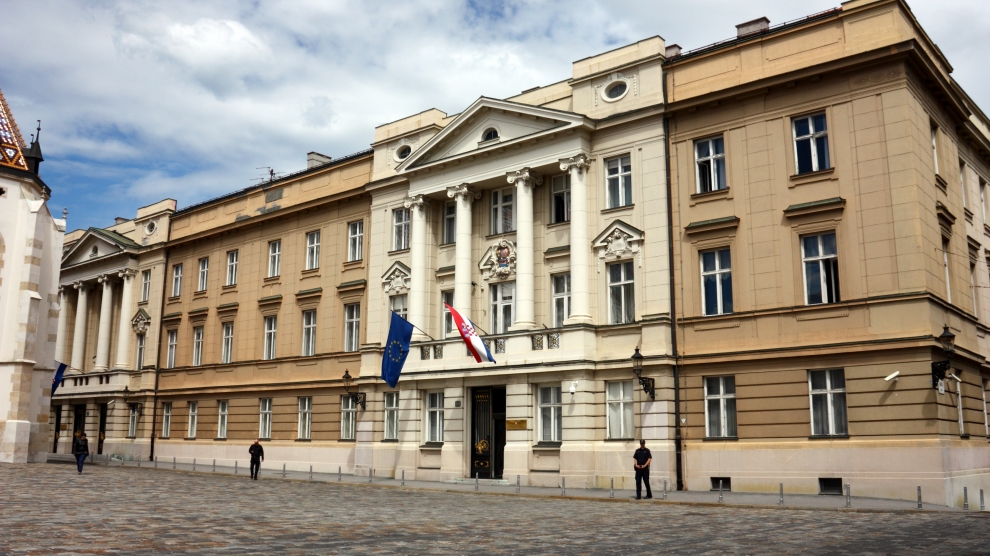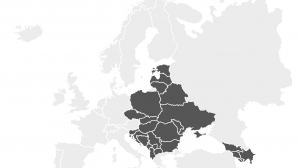“External factors should be generally supportive, with stronger growth momentum within the EU, low interest rates and quantitative easing by the ECB, subdued commodity prices and the stabilisation in Russia,” Paul Gamble, Senior Director at Sovereign Group, Fitch Ratings, tells Emerging-Europe.com.
“Other EU members are the main trade and investment partner for CEE, so an improvement in growth in the EU — our forecast for Eurozone growth is 1.7 per cent in 2016, up from 1.5 per cent in 2015 — would boost CEE economies. Fiscal easing in some counties will also support growth. Risks have probably increased, but we continue to expect solid performance,” Mr Gamble adds.
“The EU is gradually emerging from a protracted economic downturn that led to an increase in poverty in many countries. Continued easing of financial conditions, improved confidence, low commodity prices and a reduced drag from fiscal consolidation will continue to support growth in 2015 and 2016,” says Doerte Doemeland, World Bank Lead Economist and co-author of the World Bank’s the Stronger Recovery and Declining Poverty in EU, but Hurdles to Faster, Sustained Growth are High report. “However, a prolonged period of low investment growth, a slowdown in emerging-market growth, higher financial volatility and regional tensions could undermine the outlook”.
The World Bank expects growth in the EU to reach 2.0 per cent in 2015 and 2.1 per cent in 2016. It projects that growth will strengthen from 1.8 per cent (y-o-y) in the first half of 2015, with Central Europe experiencing the highest growth, driven by the Czech Republic, Poland and Romania. Poland is projected to reach 3.5 per cent in 2015 and remain above this level over the medium term, as improved labor market conditions raise real disposable household incomes and consumption.
Fitch forecasts growth of 3.0 per cent in Latvia and Slovakia and above 3.5 per cent in Macedonia, Poland and Romania.
The authors of Fitch’s 2016 Outlook: Emerging Europe Sovereigns identify the turn of the EU funding cycle as one of the main drag on growth, particularly in Czech Republic and Hungary — 2015 was the last year countries could benefit from disbursements for capital projects under the 2007-2013 investment cycle. “The gradual ramp-up in funding under the 2014-2020 cycle means it will take time for new momentum to develop. The other element that will affect performance in some of the larger sovereigns in the region are policy and political uncertainty,” they write in the report.
“Early measures under the new [Law and Justice] (PiS) government in Poland, including relaxation of fiscal policy, interference with the constitutional court and new taxes on the retail and banking sectors, have sent negative signals about the outlook for public finances, governance and potentially the investment climate. Solid domestic demand should support economic performance, but risks to the fiscal position are rising,” says Fitch’s Outlook.
Analysts expect economic policy in Romania to remain largely on hold over the course of 2016. The country loosened its fiscal policy in 2015 in the context of its new fiscal code and heads to polls in late 2016 with a technocratic government following the resignation of the scandal-tinged Ponta administration in November.
Fitch’s experts say Croatia might face a new parliamentary election in 2016 owing to the ongoing failure to agree on a coalition after the November election. In mid-December 2015, new party Most (“Bridge” in Croatian) decided that they would continue negotiations to form a government with HDZ-led Patriotic Coalition (HDZ stands for the Croatian Democratic Union), but added that SDP (or the Social Democratic Party) could still possibly join them. Thus, the situation is not clear yet.
According to the Outlook, Macedonia’s election scheduled for April 2016 could lead to a reduction in risk following years of political polarisation that has contributed to persistent fiscal slippage, but there are significant downside risks. General elections in Slovakia and Lithuania are not expected to lead to a change in policy direction owing to a broad consensus among the leading political parties.
Russia’s poor economic performance has already affected the region. Now, Fitch’s analysts expect the Big Bear’s economy to stabilise in 2016 and mark 0.5 per cent growth after a contraction of 4.0 per cent in 2015. That growth is supposed to be driven by a cautious recovery in investment and a stabilisation in private consumption.
The conflict in Eastern Ukraine is not supposed to deteriorate and the risk of a significant tightening of sanctions on Russia will diminish. After a double-digit decline in 2015, Ukraine’s economy will modestly pick up.
For Europe, including the CEE region, the migrant crisis may be a source of political tension and pressure on public finances, though this is expected to be manageable for most countries in Central and Eastern Europe as migrants will continue heading to Western Europe.






Add Comment